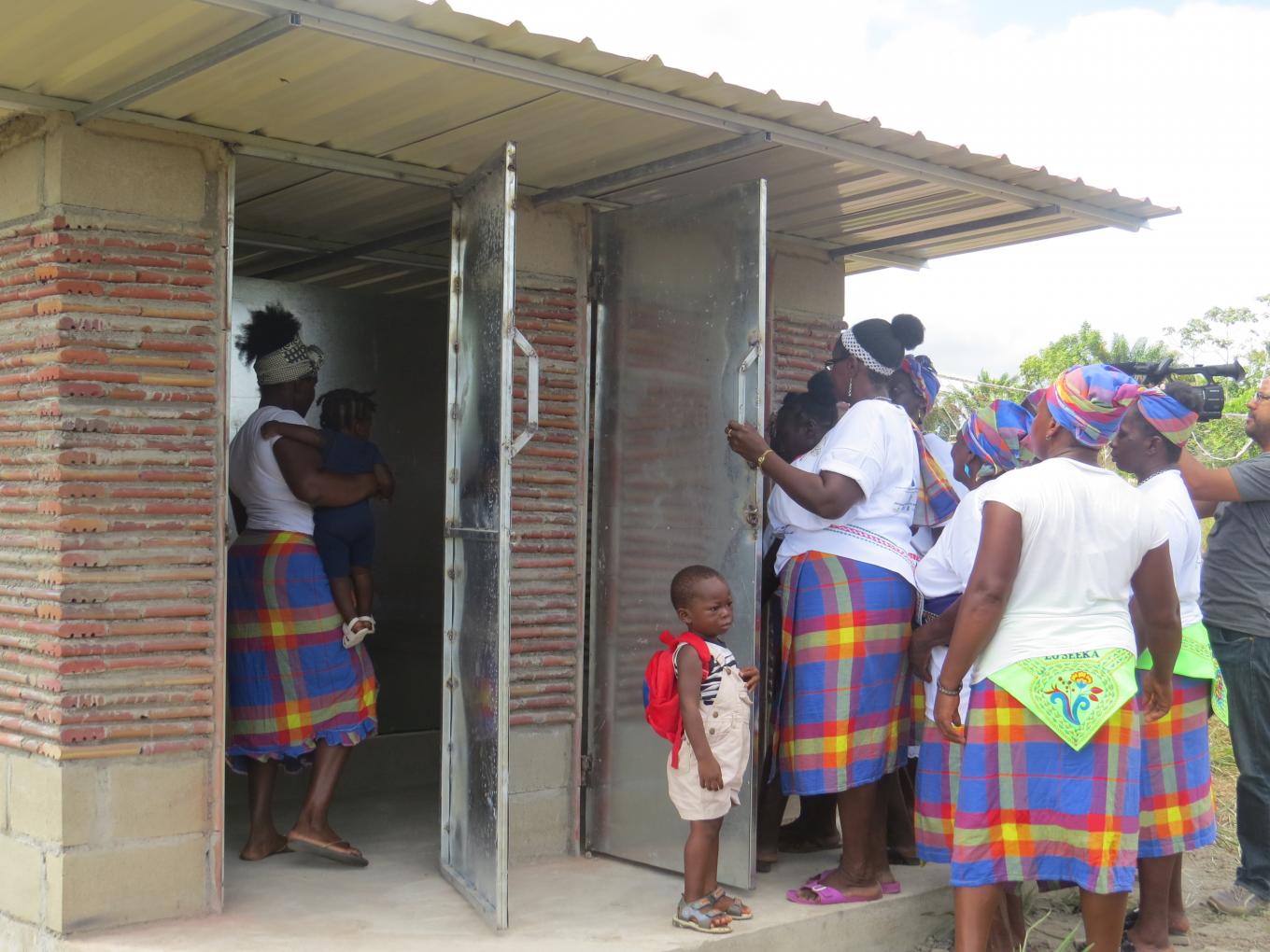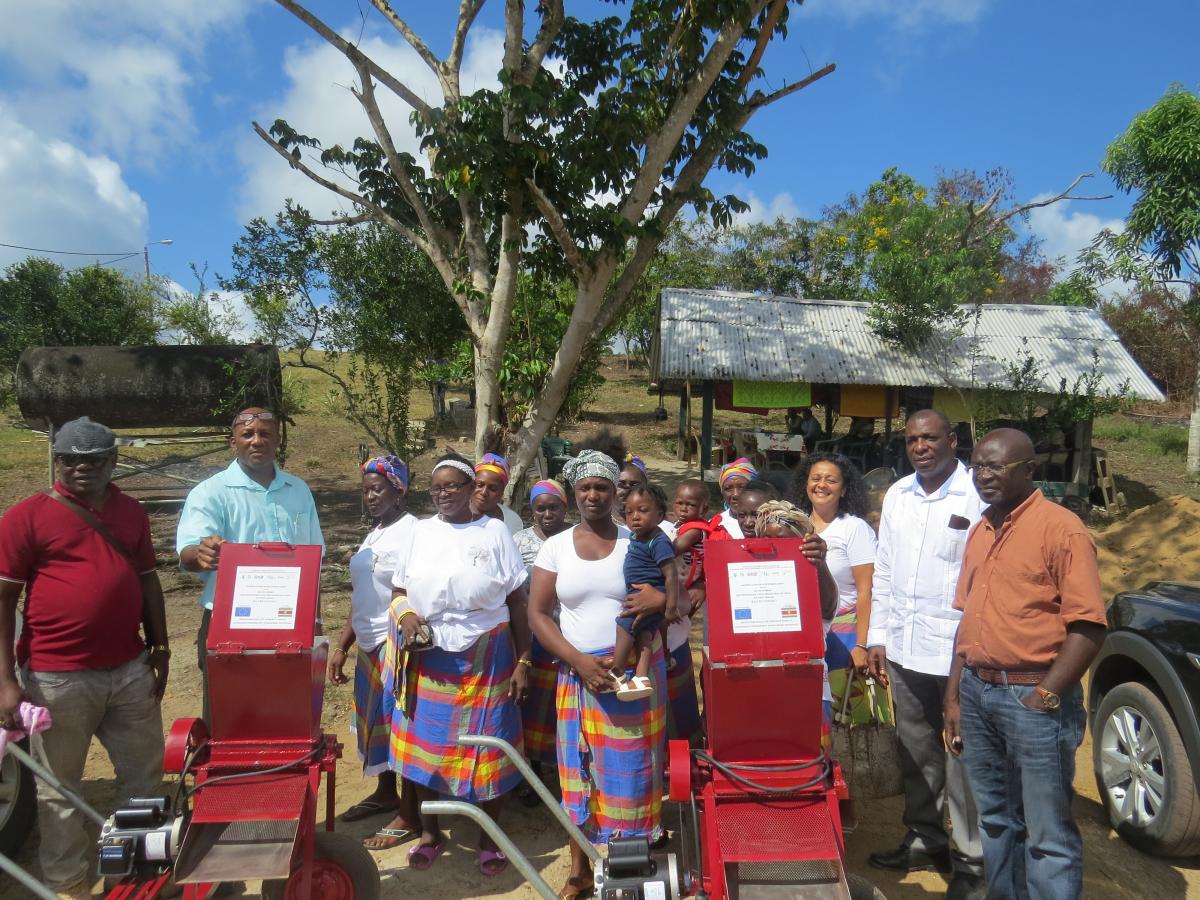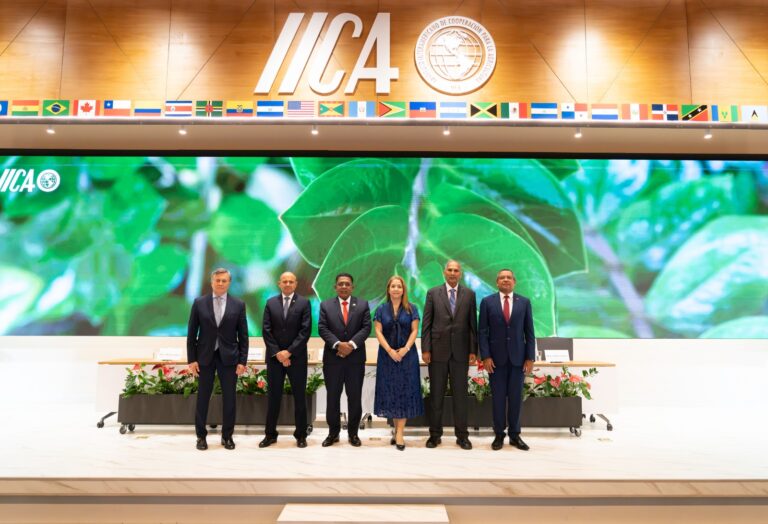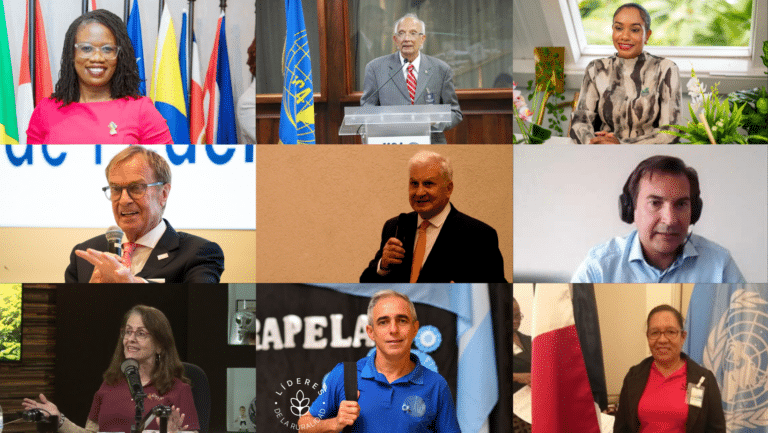The initiative was executed by IICA as part of the EU funded Intra-ACP Agriculture Policy Programme (APP) under the specific activity, “Enhancing operational and business efficiencies of small and medium size food processors in Suriname”.

Paramaribo, November, 2016. Small scale women agroprocessors from two rural communities in the interior of Suriname, Klaaskreek and Kapasikele, received cassava graters and smoke houses to facilitate their processing activities, thanks to an initiative executed by the Inter-American Institute for Cooperation of Agriculture under the Intra-ACP Agricultural Policy Programme (APP), funded by the European Union (EU) under the 10th European Development Fund (EDF).
The women are members of the Agro-Cooperative Wi Uma Fu Sranan, which means in English, “We, the Women of Suriname”. The group is a constituent member of the Suriname Organization of Rural Women Producers (SUNROP).
The donation of the two cassava graters and the construction two smoke houses, one each for the two communities, is in keeping with the objective of improving the quality and standard of processed agricultural products manufactured by small and medium-sized agroprocessors for income generation and food security.
Wi Uma Fu Sranan members in the two villages specialize in the processing of variety products from cassava roots for sale to the wider public. Each grater can process 400 kilograms of raw cassava root per hour and will significantly reduce the time spent by the women in their traditional manual processing practices of the cassava roots, as well as improve the standardization and quality of the finished products.
The custom-designed smoke houses replace the open smoke furnaces traditionally used by the women to manufacture one of their main products, Kokori, a cassava-based formula for babies, and can produce ten times the output in one cycle.
The procurement of the graters and the construction of the smoke houses was financed by the EU Caribbean Action under the APP with focus on the Caribbean and Pacific. IICA is the executing agency for the APP, and is responsible for Component 3 (Enterprise Development and Market Linkages). The APP is being implemented in collaboration with the Caribbean Agricultural Research and Development Institute (CARDI), and the CARICOM Secretariat as implementing partners.

A large number of residents of the two communities, including local community leaders, witnessed the handover ceremony, which was carried out by the IICA Delegation in Suriname.
At the ceremony, the IICA Representative in Suriname, Curt Delice, reiterated IICA’s commitment to “promoting and making more visible the economic contribution of rural women to their communities and by extension the national economy.”
The President of Wi Uma Fu Sranan, Tania Lieuw Asjoe, addressed the gathering by indicating “on behalf of the residents of the two communities and the members of our organization, we are very grateful to IICA and the European Union for the cassava graters and smokehouses, because now we will be able to process a lot more, but also carry out the processing in a facility where we will be in full compliance with food safety standards.”
The handover was supported by representatives of the Ministry for Agriculture, Animal Husbandry and Fisheries, the Ministry of Regional Development, and the National Information Centre of the Government of Suriname.
More information:










